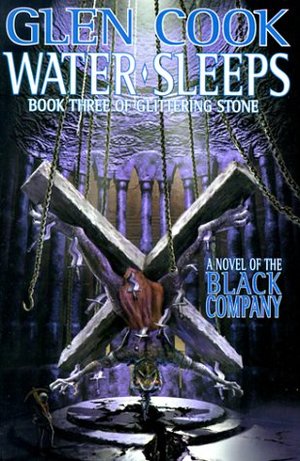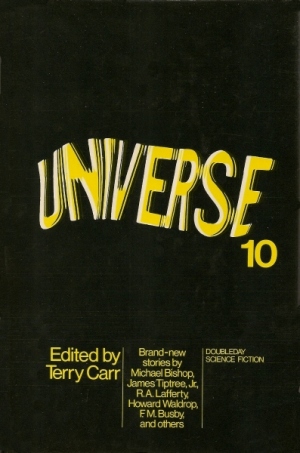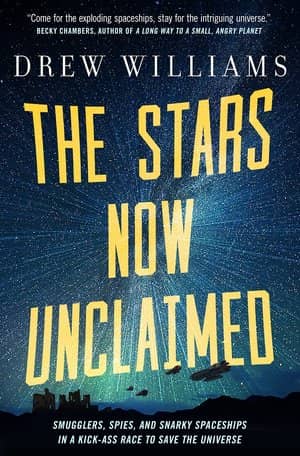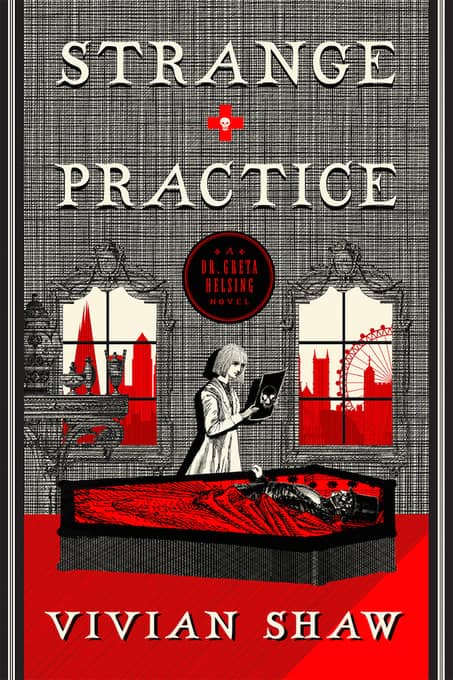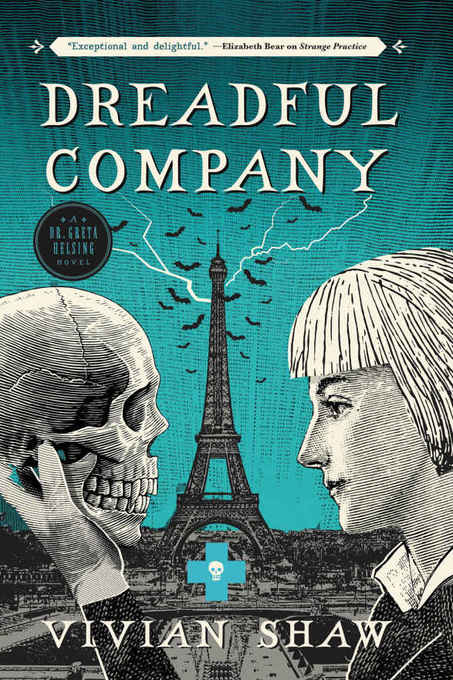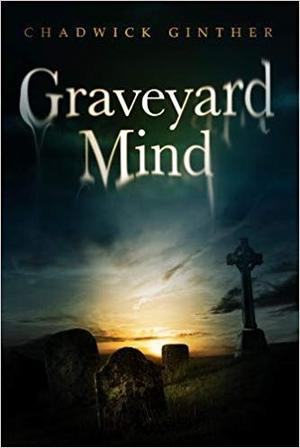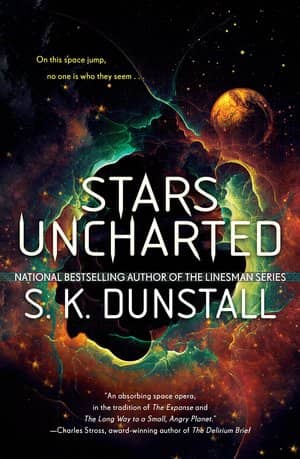Fairy Tales, Space Stations, and a Sequel to The Thing: The Nebula Awards Showcase 2018, edited by Jane Yolen
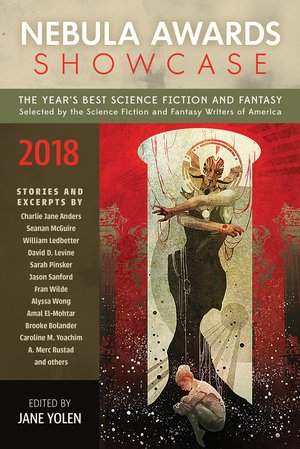 The annual Nebula Awards Showcase anthologies, which collect the Nebula Award nominees and winners, are edited by a revolving committee of editors, and that means the criteria used to select the fiction varies every year.
The annual Nebula Awards Showcase anthologies, which collect the Nebula Award nominees and winners, are edited by a revolving committee of editors, and that means the criteria used to select the fiction varies every year.
I think this is a great idea. Essentially, each year it gives editorial power to a new individual to select which stories to showcase. The winners are always included, of course, but picking between the nominees (especially in the novella category, which frequently would fill one and a half anthologies all on its own) is a challenge, and it needs a strong editorial hand to make tough decisions.
For example in 1980, for Nebula Winners Fourteen, Frederik Pohl jettisoned virtually every single short fiction nominee (and all the novelettes) so he could make room for just two stories, C. J. Cherryh’s Hugo Award-winning “Cassandra,” and Gene Wolfe’s massive 60-page novella “Seven American Nights.” That had to be a tough call, but I think it was the right one.
In the 2018 Showcase volume, editor Jane Yolen makes a similar choice. Seanan McGuire’s Every Heart a Doorway, which won the Best Novella Nebula, is a massive 176 pages, far bigger even than Gene Wolfe’s 60-page classic, and would throughly dominate the anthology. Instead, for the first time I can remember, Yolen has chosen not to include the full version of the Nebula Award winning novella, but rather represent it with a 20-page excerpt. That leaves her with enough space to include every short story and novelette nominee (or at least, as is the case for Fran Wilde’s 96-page The Jewel and Her Lapidary, a substantial excerpt).
It’s a bold decision, and I applaud it. The 2018 Nebula Awards Showcase is a terrific volume, and it certainly gives you the opportunity to sample a wide variety of top-notch fiction from last year, including the delightfully subversive fairy tale “Seasons of Glass and Iron” by Amal El-Mohtar, Sam J. Miller’s thoughtful and creepy sequel to John Carpenter’s The Thing, “Things With Beards,” Caroline M. Yoachim’s “Welcome to the Medical Clinic at the Interplanetary Relay Station / Hours Since the Last Patient Death: 0,” and excerpts from All the Birds in the Sky by Charlie Jane Anders and Arabella of Mars by David D. Levine
If you’re looking for a Best Of collection that encapsulates some of the finest science fiction from last year, it makes a splendid choice. Here’s the complete Table of Contents.
